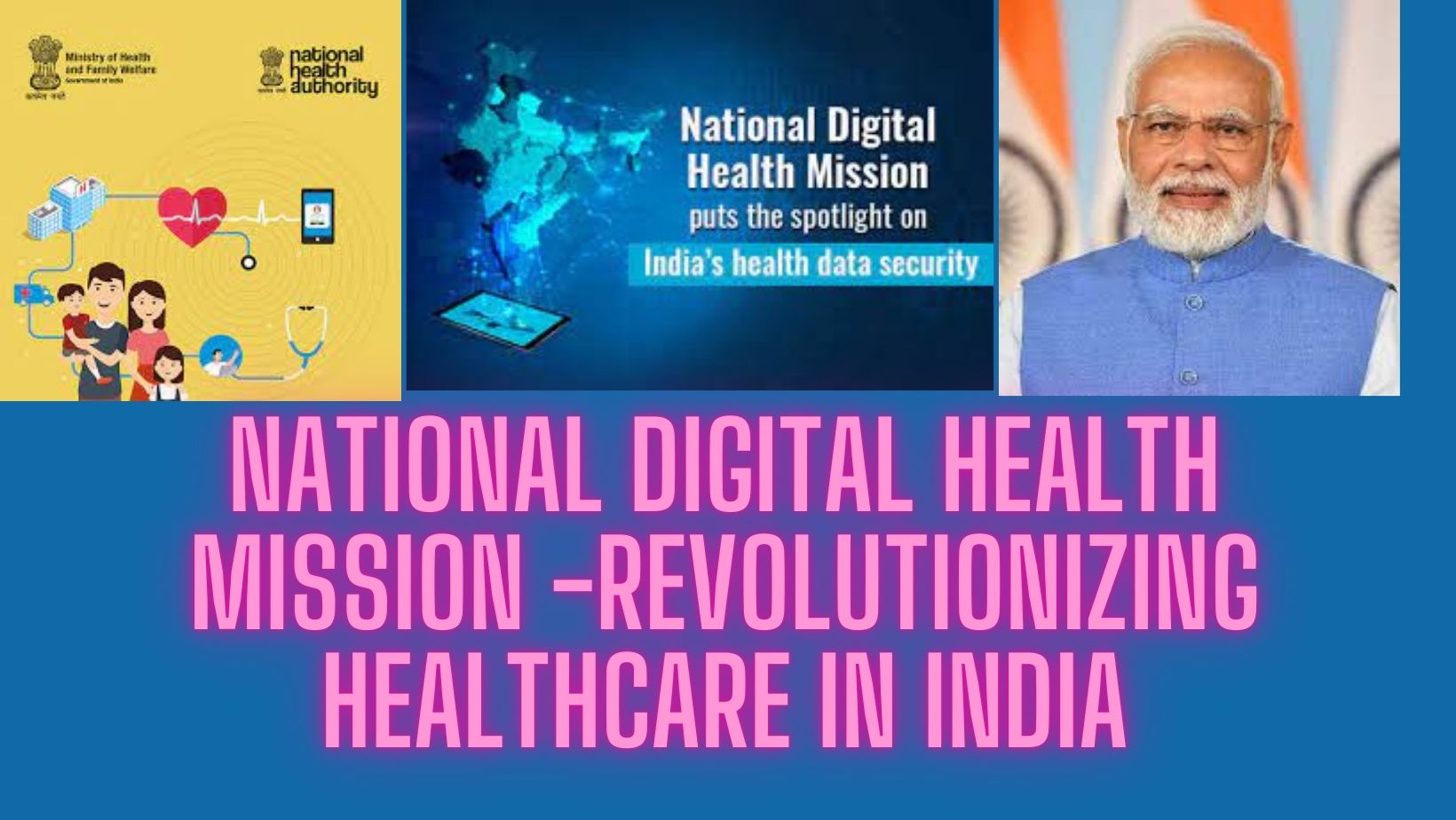
The National Digital Health Mission (NDHM) has emerged as a groundbreaking initiative, aimed at establishing a comprehensive and inclusive digital healthcare ecosystem in India. With the dual objectives of ensuring universal health coverage and promoting efficiency, accessibility, and affordability in healthcare services, the mission strives to leverage the potential of open, interoperable, standards-based digital systems. It is also a very important topic for the UPSC aspirants to cover.
Launch and Key Components of the National Digital Health Mission (NDHM)
National Digital Health Mission Launched on August 15, 2020, by Prime Minister Narendra Modi, the NDHM envisions an integrated healthcare system that seamlessly connects practitioners with patients through real-time health records. One of the key components driving this digital transformation is the Health ID, a unique identifier designed to authenticate individuals based on their past health records. The NDHM comprises several interconnected components, including NDHM Health Records, Electronic Medical Records, Health Facility Registry, and Healthcare Professionals Registry.

Benefits of Digital Health National Digital Health Mission
Digital health brings numerous benefits to patients, healthcare providers, and communities.
- – Expanded access to healthcare services
- – Improved healthcare outcomes and personalized treatment plans
- – Decreased healthcare costs
- – Increased operational efficiency
- – Integration of machine learning algorithms for diagnosis
Evolution of Digital Health
Digital health has experienced significant growth and acceptance in the last decade. In 2017, the establishment of a digital health unit by the US Food and Drug Administration marked a milestone in the field’s development. The components of digital health include mHealth apps, Electronic Health Records (EHRs), wearable devices, and telemedicine. The holistic nature of personal health further contributes to the diversity and complexity of the digital health ecosystem.
Ensuring Safety in the Healthcare Landscape
Safety is a critical aspect of healthcare. The five pillars of safety include hand hygiene, streamlined processes, accurate surface measurement, continuous augmentation, and integration of emerging solutions. By prioritizing safety, the healthcare landscape can adapt to the evolving needs and challenges while ensuring the well-being of patients and healthcare providers.
Conclusion
The National Digital Health Mission has the potential to revolutionize healthcare in India by creating a robust and comprehensive digital infrastructure. By prioritizing the complexity and diversity of healthcare practices, the mission aims to achieve universal health coverage in an efficient, accessible, inclusive, affordable, timely, and safe manner.
FAQs
1. What is the National Digital Health Mission (NDHM)?
The National Digital Health Mission is an initiative in India aimed at establishing a comprehensive and inclusive digital healthcare ecosystem. It aims to ensure universal health coverage and promote efficiency, accessibility, and affordability in healthcare services.
2. What is the significance of the Health ID in the NDHM?
The Health ID is a unique identifier designed to authenticate individuals based on their past health records. It plays a key role in connecting practitioners with patients through real-time health records.
3. How does digital health benefit patients and communities?
Digital health expands access to healthcare services, decreases healthcare costs, improves patient health outcomes through personalized treatment plans, and increases operational efficiency at health facilities.
4. What components make up the National Digital Health Mission?
The NDHM comprises interconnected components such as NDHM Health Records, Electronic Medical Records, Health Facility Registry, and Healthcare Professionals Registry. These elements contribute to the diverse range of data and infrastructure services available.
5. How does the integration of machine learning contribute to digital healthcare?
The integration of machine learning algorithms enhances the diagnosis process in healthcare, adding another dimension to the evolving landscape. It enables more accurate and personalized healthcare solutions.
Official Website Click Here
This Website Click here
Read More
UDAY (Ujwal DISCOM Assurance Yojana): Empowering India’s Power Distribution Companies

2 thoughts on “National Digital Health Mission -Revolutionizing Healthcare in India- A must know topic for UPSC Aspirants”